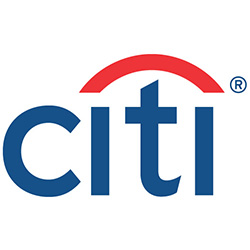Wealth Strategies
Get Ready For Opportunities Ahead, Says Citi Global Wealth

A broadly cautious approach makes sense at the moment but clients should be primed to move and capture opportunities, the US banking group said. In one area – bonds – it recommends that investors should spread risks and capture yields. Bonds have regained some of their diversification status after the losses of 2022.
Citi Global Wealth, part of Citigroup, is
continuing to take a broadly defensive asset allocation
stance in the uncertain economic environment but said that
clients have many chances to adjust and catch opportunities as
they arise.
“We believe that current markets will lead into a meaningful
potential recovery in 2024,” the US group said in its mid-year
outlook for 2023.
The firm said the world is going through a “rolling recession”
where parts of the US economy are growing even as others are
slowing down. As inflation slowly eases after a period of US
Federal Reserve rate rises, Citigroup believes that it is
“imperative” for clients to stay invested.
Among its calls to action, Citigroup said clients should extend
duration in their bond portfolios, diversify risk and earn higher
yields, noting that adding private credit can add “significant
yield” as banks retrench their activity. Bonds also can win back
the diversification benefits they lost in 2022 when markets
sold off.
“Though the broader bear market may not yet be over, we are
seeing significant valuation improvements in certain sectors that
provide our clients with the potential to invest in higher
income-generating assets and long-term growth opportunities,”
David Bailin, chief investment officer, Citi Global Wealth, said.
“Our outlook for the remainder of 2023 and heading into 2024
suggests that clients may benefit most from a return to what we
call `core investing’ – fully invested portfolios that move from
defense to offense, from more bonds to more equities, from
US-focused to global.”
“We favor investing in select non-US equities, identifying value
within US markets, broadening tech and growth equity exposures
and emphasizing alternative investing and private credit for
suitable investors with a longer time horizon,” Bailin
added.
Elsewhere, the US firm said foreign exchange moves show that
there are opportunities for clients to diversify into non-dollar
assets and capture future returns in upcoming decades.
“The strong US dollar means we can buy non-US assets at deeply
deflated prices,” Steve Wieting, chief economist and chief
investment strategist at Citi Global Wealth, said. “While we
expect periodic US dollar rallies, we ultimately will see a
weakening dollar, making currency exposure more critical.”
As well as taking currency exposure into account, Citi Global
Wealth is also favoring long-duration bonds to offset a potential
widening of bond yield spreads and to add “defensive” equities
with a strong bias to firms that are able to produce dividends,
and which have strong balance sheets, Wieting said.